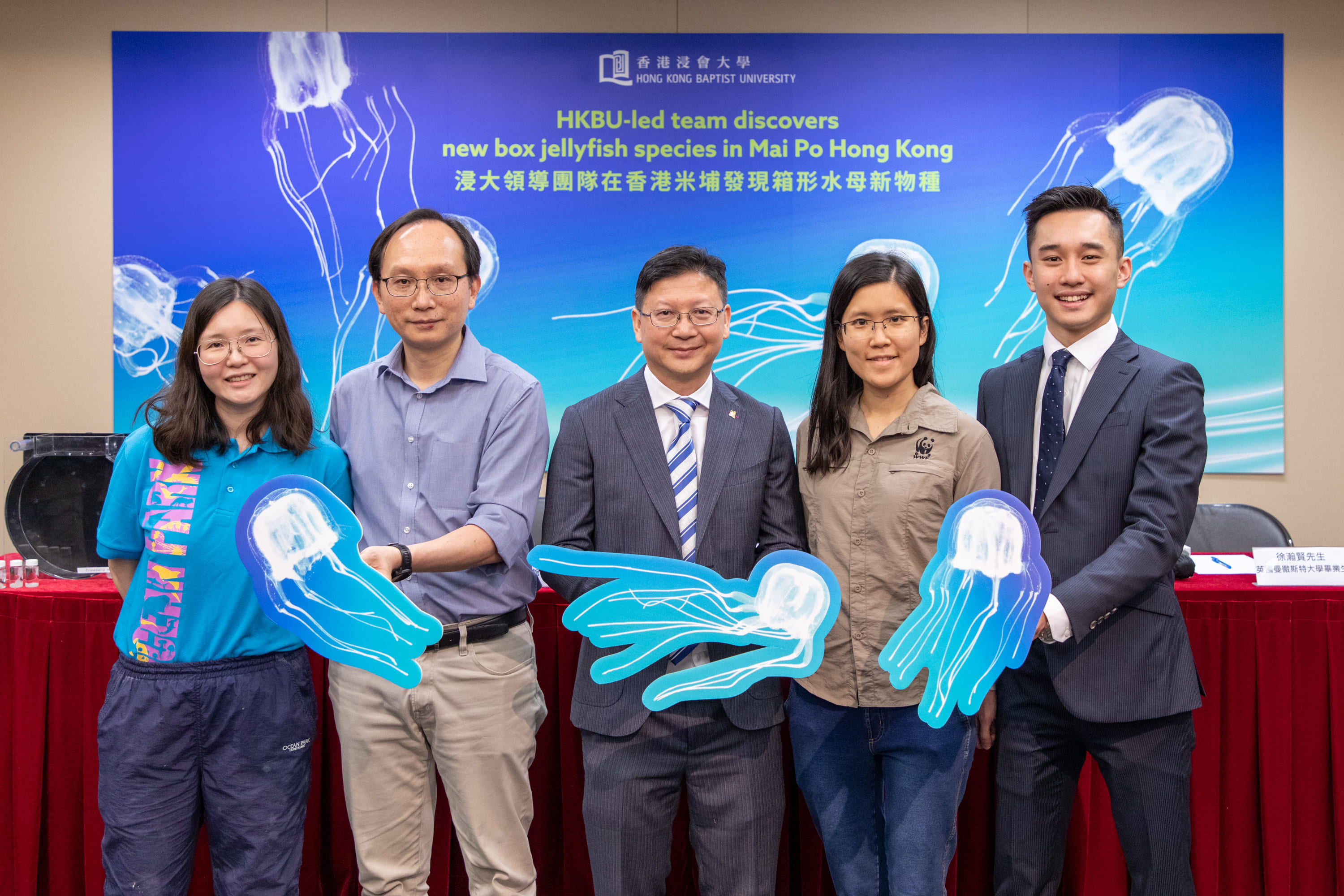Hong Kong Baptist University-led team discovers new box jellyfish species in Mai Po Hong Kong
- Written by Auzzi Shopping
HONG KONG SAR - Media OutReach - 18 April 2023 - A Hong Kong Baptist University (HKBU)-led team has discovered a new species of box jellyfish in the Mai Po Nature Reserve in Hong Kong.
The new jellyfish species, which belongs to the family Tripedaliidae, was named Tripedalia maipoensis by the research team. It is the first discovery of a new box jellyfish species from the waters of China. The discovery also adds a fourth species to the Tripedaliidae family. 
A paper describing the new species has been published in the international academic journal Zoological Studies.
Box jellyfish named after Mai Po
The research team was led by Professor Qiu Jianwen, a Professor of the Department of Biology at HKBU. With collaborators from WWF-Hong Kong, Ocean Park Hong Kong and the University of Manchester, the team collected the jellyfish samples from a brackish shrimp pond, locally called "gei wai", in the Mai Po Nature Reserve during the summers of 2020 to 2022, and they found that the samples contained a new species.
Professor Qiu said: "We named the new species Tripedalia maipoensis to reflect its type locality – where the new species was first found. Although it is currently known only in Mai Po, we believe that this species is also distributed in the adjacent waters of the Pearl River Estuary as the gei wais are connected to the estuary through a tidal channel."
Fourth species of the family Tripedaliidae
Named for its cube-shaped body, the box jellyfish, (or scientifically known as class Cubozoa) belong to the phylum Cnidaria. Even though the class Cubozoa is one of the smaller groups among the cnidarians, it includes some of the highly venomous marine animals that are widely known in the tropical waters.
The newly discovered Tripedalia maipoensis belongs to the family Tripedaliidae. It is the fourth described species of Tripedaliidae, and the third described species of the genus Tripedalia around the world. It has a transparent and colourless body with an average length of 1.5 cm. There are three tentacles that are up to 10 cm long at each of its four corners. Pedalia, a flat pedal-shaped structure at the base of each tentacle that looks like a boat paddle, allows box jellyfish to produce strong thrusts when they contract their bodies. They can thus swim faster than other kinds of jellyfish.
The box jellyfish with 24 eyes
Like other box jellyfish, Tripedalia maipoensis has 24 eyes. The 24 eyes are equally divided into four groups, and each group of six eyes is located inside a sensory depression called a rhopalium on each side of the bell. In each group of eyes, the researchers believe that two of them have lenses that enable image-forming, while the other four can only sense light.
Box jellyfish are also characterised by having a velarium, a membranous and muscular sheet that constricts the opening of the bell. There are canals in the velarium which run along the bell margins and allow water to enter the bell. In the new species, the velarial canals are biforked into multi-branches, which distinguishes them from other species of the same genus.
First discovery of new box jellyfish species in Chinese waters
The research team compared samples of Tripedalia maipoensis with those of other closely related species using morphological and molecular methods.
It was discovered that the new species exhibits greater diversity compared to Tripedalia cystophora – its closely related species that have been widely reported in the tropics and subtropics including Jamaica, Florida, Singapore, Australia, and India.
Professor Qiu said: "Box jellyfish are a small group of cnidarians with only 49 species reported worldwide. They are poorly known in Chinese marine waters. Our discovery of Tripedalia maipoensis in Mai Po – a relatively well-studied area in Hong Kong – highlights the rich diversity of marine life in Hong Kong and even the whole of China."
Please click here for photos of the jellyfish and a video on its discovery.
Hashtag: #Jellyfish
The issuer is solely responsible for the content of this announcement.



























